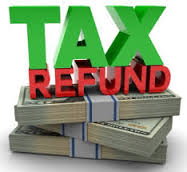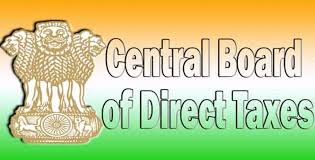 Are you wondering why you have not received your income tax refund yet despite having filed your income tax return (ITR) within the due date for assessment year (AY) 2019-20? There could be various reasons for the same. However, a common reason could be furnishing incorrect bank account details in the ITR form.
Are you wondering why you have not received your income tax refund yet despite having filed your income tax return (ITR) within the due date for assessment year (AY) 2019-20? There could be various reasons for the same. However, a common reason could be furnishing incorrect bank account details in the ITR form.
While tax refund was earlier issued either in the form of cheque or direct credit to bank accounts, the income tax department now credits tax refunds only in the form of direct credit in the bank accounts of taxpayers. Moreover, from this AY, these accounts need to be pre-validated and linked to the taxpayers’ permanent account number (PAN).
You are eligible to claim a refund if excess income tax has been deducted from your income during the year. This could happen in cases of multiple incomes or where tax is deducted at source (TDS). The income tax department does refund this excess tax paid, but you have to apply for it when filing your ITR for the relevant financial year.
Track the status
In case you have not received your refund yet, you first need to check the status of your refund. “About five to six years ago, one had to approach the assessing officer to find out the status of refunds. Now one can check it online within minutes,” said Amit Maheshwari, partner, Ashok Maheshwary and Associates LLP, a chartered accountancy firm. Except in few cases, now most people get their refunds in a few months of filing returns, added Maheshwari.
You can track the status of your refund on www.incometaxindia.gov.in or www.tin-nsdl.com. Click on “Status of Tax Refunds” tab, enter your PAN and the AY for which you want to track the refund. If the refund has been processed, a message will pop up, stating the mode of payment, a reference number, status and date of refund.
However, if there is an issue because of which refund has not been issued or declined, the message will say so. For instance, if the message states “refund unpaid”, it could be because the bank account details (account number or IFS Code) that you have submitted to the income tax department are wrong. In that case, check your bank account details you have mentioned in your ITR.
Bank account information
According to income tax rules, you are supposed to provide details of all the savings and current accounts held by you at any time in India during the previous year, while filing your returns. It is not mandatory to provide details of dormant accounts which have not been operational for more than three years. However, “if the income from all the bank accounts has been duly included though the details of the account itself may have been omitted, no penalty may be leviable in such cases,” said Maheshwari.
If you have more than one bank account, you are required to indicate the account in which you would like to get your refund credited, irrespective of whether you have a refund or not. Bank details include the name of the bank, account number, and the 11-digit IFS Code of the bank or details of international bank account number (IBAN) in case you have a foreign bank account.
Taxpayers who filed returns for AY2019-20 were also required to ensure that the bank account chosen for the refund is pre-validated with the e-filing account and linked with their PAN.
Failure to provide any of the above mentioned details may result in the refund not getting credited.
Making correction
If you find you have made a mistake in providing your bank account details, you have the option to update it, before placing a request for re-issue of refunds.
Remember that you can update your bank account details only in case where your return has been processed and your refund was failed or not credited in your bank account because of an issue with your bank account details.
In such a case, you need to modify your account details and place a request for reissue of refund. It can be done online by logging into the e-filing portal, www.incometaxindiaefiling.gov.in, with your user ID and password. Next, go to “My Account” and then click on “Refund re-issue request”. Follow the steps and enter the new bank account number or make a correction in the already mentioned bank details and submit the request.
Before doing so, make sure this account is linked with your PAN and is pre-validated. In order to link your bank account with PAN, you need to visit your bank’s branch with a copy of PAN. It is a simple process and does not take much time. Once you link your bank account with PAN, pre-validate the bank account through the income tax e-filing account. Log on to e-filing accounts, go to “profile setting” and choose which bank you want to pre-validate. You will need to provide information like bank name, bank account number, IFS Code, mobile and email ID to validate your bank account.
Once you update the bank account and place a request for reissue of refunds, it will most likely get credited to your account in a few days.





 In the union budget 2020, the following section
In the union budget 2020, the following section 
